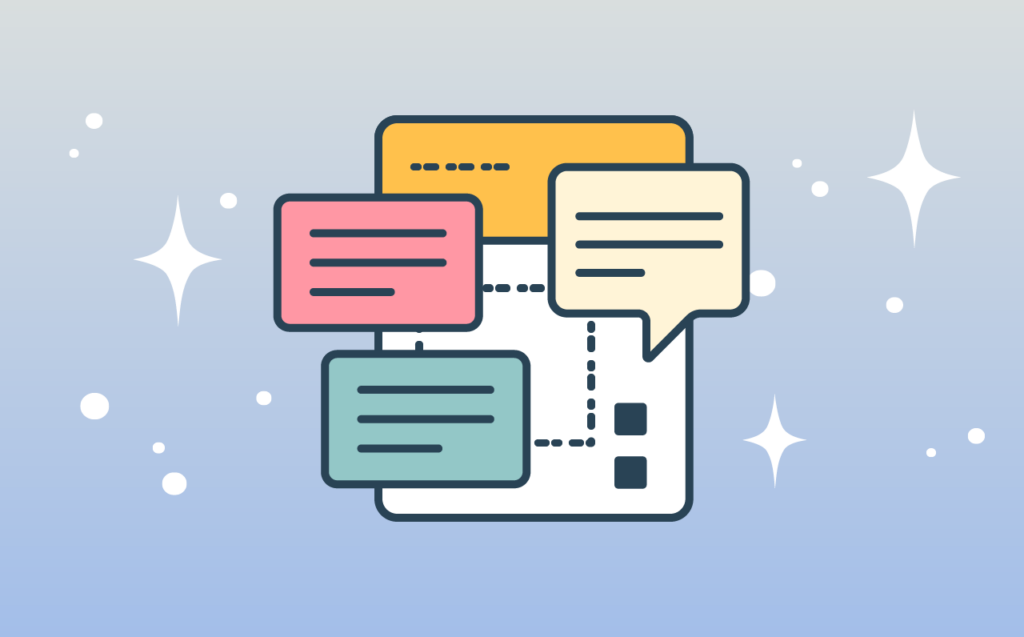Half of everything a physician knows about medicine will be obsolete in 73 days.
That’s the pace of modern medical advancement—and it’s literally impossible for any doctor to keep up (unless they somehow figure out a way to study 20-plus hours a day).
As a behavioral health clinician, you aren’t exempt from this dilemma: half of everything you know about your field will be obsolete in 7 years. Scary, right?
If only there were a “refresh” button on your brain—a way for you to continually add to the data repository informing your clinical decision-making. Well, there is—but for some, the letters “AI” are even more scary than falling behind the knowledge curve.
That’s just it, though: we’re talking about pure knowledge. Facts. Research. Science.
We’re not talking about how trained clinicians apply that knowledge to individual treatment sessions and care plans—or how they use their unique tone, demeanor, and even word choice to lead impactful conversations with their clients.
It’s an important distinction to make, because it’s the antidote to industry-wide fear of artificial intelligence. Robots aren’t here to take your job—they’re here to take some of the most burdensome parts of your job off your shoulders so you can focus on providing exceptional care to your clients.
So, let’s put some of the myths around AI to rest—and talk about the biggest ways it’s actually bringing humanity back to behavioral health care.
AI can help you spend more quality time with your clients.
There’s so much invisible work that happens outside of the treatment setting: reading the latest research, completing continuing education courses, and writing compliant notes.
Most clinicians didn’t get into behavioral health to do these things (especially the paperwork part). But nevertheless, they must be done.
Here’s where augmented intelligence enters the chat. (Yes, “augmented” rather than “artificial”—because you, as the clinician, are still very much in control.)
According to Dennis Morrison, Ph.D, clinical strategist and owner of Morrison Consulting, “The relationship between us and machines, particularly artificial intelligence, is to capitalize on what humans do best.”
In other words, the true value of AI is its ability to take some of the tedious demands of the job off your plate—things like research review and synthesis, dictation, and compliant documentation—so you can spend more time doing what you actually want to do: having meaningful conversations with your clients.
AI can’t make clinical decisions for you.
Computers are built to process, analyze, and distill large amounts of information. They are better at it than any human on the planet—that’s a fact.
What they lack is the ability to consider that information in the context of a real-life situation—one complicated by factors they cannot intake and process. A computer can’t read between the lines—it can’t pick up on a certain look in a client’s eyes or shift in their body language. A computer can’t connect the dots between potential environmental factors and client health. A computer can’t follow its gut—its intuition.
Given that social determinants of health account for up to 50% of variations in health among individuals, it’s easy to see why relying solely on machines for healthcare decisions is incredibly problematic—if not downright irresponsible.
In essence, machines aren’t capable of making fully informed decisions about the humans in front of them, because they can’t detect and interpret the signals and cues that make us human. It takes one to truly know one, and machines are nowhere near bridging the biological divide.
Think of it this way: A computer can scan a restaurant menu and make a choice based on inputs like allergies, price ranges, and flavors. But it can’t interpret the look of disgust on your friend’s face when you ask if she wants to try the raw squid appetizer.
AI can quickly distill entire treatment sessions into key themes and ideas.
Augmented intelligence platforms like Eleos are designed to quickly process entire treatment sessions and tease out the most important pieces. Say you just completed a 45-minute treatment session with around 6,000 spoken words. How long would it take you to sit down and document that conversation? Twenty minutes? Half an hour? More?
With Eleos, you can have a list of key moments and themes—along with analytics on things like therapeutic techniques, reflections, and clinician-versus-client talk time—within 3 minutes. That’s less time than it takes to make a cup of tea.
Then, you simply click to add relevant items to the appropriate section of the note, saving tons of manual entry time in the process. Check out this video to see how it works.
You’re still adding all the ingredients in the right order—it’s just that someone else (or more accurately, something else) has measured and chopped them for you.
AI can’t run a treatment session without you.
Even the best AI technology lacks the processing speed and interpretive capacity to lead nuanced, highly contextual conversations in real time—and deliver evidence-based treatment in tandem with those conversations.
So, get that image of a robot therapist out of your head.
Instead, AI helps you reflect on, better understand, and learn from the sessions you’ve already led—unlocking new perspectives on your therapeutic approaches and techniques as well as your clients’ needs.
Over time, this leads to better care and better outcomes. And that’s what it’s all about, right?
AI can cut documentation time in half.
In addition to distilling recorded sessions—including both telehealth and in-person visits—into key moments and themes, AI tools like Eleos also assist with freeform note-writing.
The more notes you complete, the better Eleos gets to know your unique writing style, vocabulary, and frequently used tests and treatments. It can then speed up the documentation process by autocompleting your sentences as you start typing them—sort of like that one friend who knows you so well they can guess exactly what you’re thinking before you even say it.
These features combined can reduce the time clinicians spend documenting by up to 50%. Just think of all the things you could do if you cut your daily documentation time in half!
AI can’t complete an entire treatment note for you.
Going back to the robot example, it’s important to recognize that augmented intelligence is not the medical scribe version of Rosie from The Jetsons.
While AI absolutely makes the documentation process faster, you as the clinician must use your clinical decision-making skills to determine what’s relevant and accurate—and what’s not. You must weave all the elements of the note together to paint a clear picture of the client’s progress and your role in it.
Furthermore, you—as the treating clinician—must sign off on the note. No robo-signatures allowed.
AI can be a game-changer for time-strapped clinicians like you.
Clinician burnout is real. There’s no sugar-coating it.
As demand for behavioral and mental health care continues to rise at an unprecedented rate, clinicians are finding themselves with too many clients and not enough hours in the day. With jam-packed schedules and back-to-back appointments, they barely have time to breathe—let alone complete their notes.
Sound familiar? If so, then this point is for you: AI can mean the difference between working through dinner and leaving the office in time to enjoy a family meal at home. It can mean the difference between rushing to meet timely filing deadlines and documenting thoroughly, compliantly, and completely. It can mean the difference between raising the bar on care quality and barely keeping up with growing caseloads.
AI can breathe new life into your career as a clinician—recentering your focus and reminding you why you got into this field in the first place.
In the words of Eleos user Hadiya Barlatier-Johnson, M.S., APC, NCC, CA, “It has changed my life as a clinician.”
AI can’t be you. (Not even close!)
While this technology is revolutionary, it’s not a replacement for the years of education, training, experience, and practice that you’ve accrued as a clinician. There’s absolutely no reason to be scared or threatened by it.
In fact, we’d wager that you should be more scared of not using it—because those who embrace AI will be better equipped to enjoy long, happy, impactful careers in behavioral health.
Like any other new technology, adoption will take time. We all had a friend or family member who vowed never to use a smartphone. Or GPS directions. Or Alexa. But once they did, they wondered how they ever lived without it!
And while half of your clinical knowledge might be obsolete in 7 years, that doesn’t mean you will be—especially if, as Eleos user Sandra Howard, LPC, explains, you embrace technology as something that can help you “continue to learn and grow” and “remain relevant.”
All of that is to say, AI is here to stay. And one day, you’ll wonder what you ever did before it arrived.

